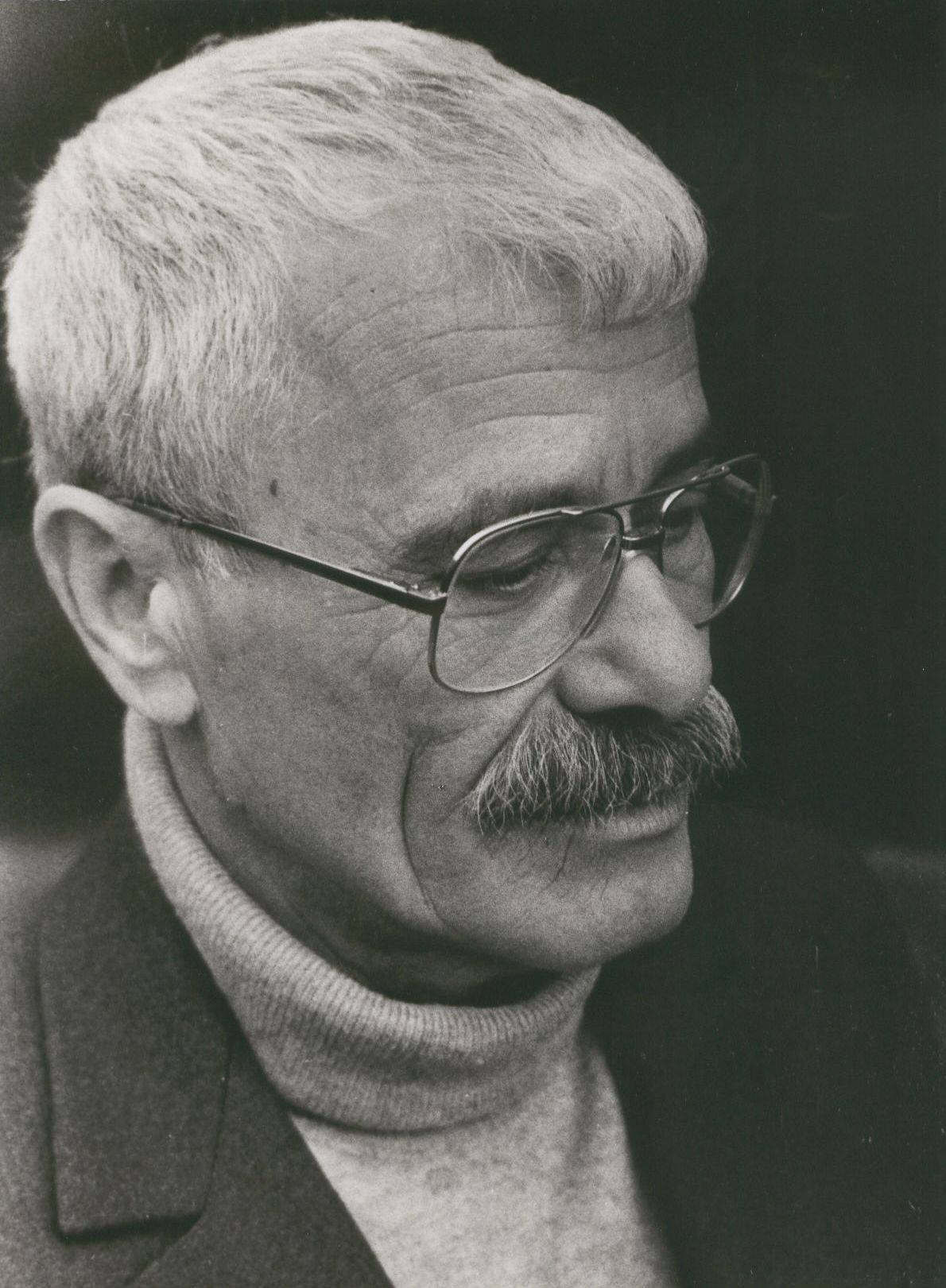Icchokas Meras
Icchokas Meras (1934-2014) came from a Lithuanian Jewish family that lived in the small town of Kelmė in western Lithuania. His parents were murdered during the Holocaust when he was a child, and he was hidden and raised by a local Lithuanian family. This experience, of both extreme cruelty and extreme kindness, marked all his later life and work. He published his first collection of short stories in 1960, and he wrote several screenplays for films. In 1972, he emigrated to Israel, in protest against the regime. However, he continued always to write only in Lithuanian. The Holocaust and Jewish themes consistently recur throughout his books, which have been translated into many languages and have been awarded prizes in both of his homelands and abroad. His writing celebrates abstract humanism, it is very controlled, the characters are symbolic, the situations are carefully modelled, and various literary devices are used, but always with a clear purpose in mind.
Lygiosios trunka akimirką (Stalemate). Vilnius: Valstybinė grožinės literatūros leidykla, 1st ed. 1963; Vilnius: Vaga, 2nd ed.; Lithuanian Writers’ Union Publishing House, 3rd ed. 1998; Vilnius: Baltos lankos, 4th ed. 2006. – 190 p.
This is probably the most famous of Meras’ books, and it has already been through three editions. The setting is the Vilnius ghetto during the Nazi occupation. At the centre of the story is a game of chess, played by a Nazi called Šogeris, and a Jew, the young and talented Izaokas. There are lives at stake. If Izaokas loses, the Nazis will kill the children of the ghetto. And if he wins, only he will die. The book is divided into chapters, according to the chess pieces and the moves in the game. But the main conflict is obviously the moral dilemma. Izaokas’ father Abraomas, echoing the Bible, has raised his seven children well. Some things are more important than life itself. He is ready to sacrifice his youngest son for them. Abraomas’ role is to counter the dehumanised, brutal cruelty of the Nazis. The novel accepts no compromise: you win or you lose, there is no grey area. Shocking, cruel and painful, the book still tells a story about the majesty of being human, and about rising above evil.
Selected translations
Ukrainian: Нiчия триває лише мить. Translated by Beatričė Beliavciv. Київ: Брайт Стар Паблишинг, 2017
Russian: Ничья длится мгновение. Translated by Felix Dektor. Москва: Текст, 2013
Italian: Scacco perpetuo. Translated by A. Povilavičiūtė, V. Lucattini Vogelmann. Firenze: La Giuntina, 2007
English: Stalemate. Translated by Jonas Zdanys. New York: Other Press, 2005
Spanish: Tablas por segundos. Translated by Macarena Gonzalez Mamad. Barcelona: RBA, 2004
French: La partie n’est jamais nulle. Translated Dimitri Sesemann. by Paris: Stock, 2003
Turkish: Oyun asla berabere bitmez. Translated by Aykut Derman. İstanbul: Om Yayinevi, 2002
German: Remis fur Sekunden. Translated by Irene Brewing. Berlin: Aufbau Taschenbuch Verlag, 2001
Hungarian: Dontetlen, egy pillanatig. Translated by Márta F. Kemény. Budapest: Magvető, 1968
Polish: Gra o życie. Translated by Anastazja and Zygmunt Stoberscy. Warszawa: Państwowy Instytut Wydawniczy, 1968
Contact for inquiries: kotryna.pranckunaite@lithuanianculture.lt
